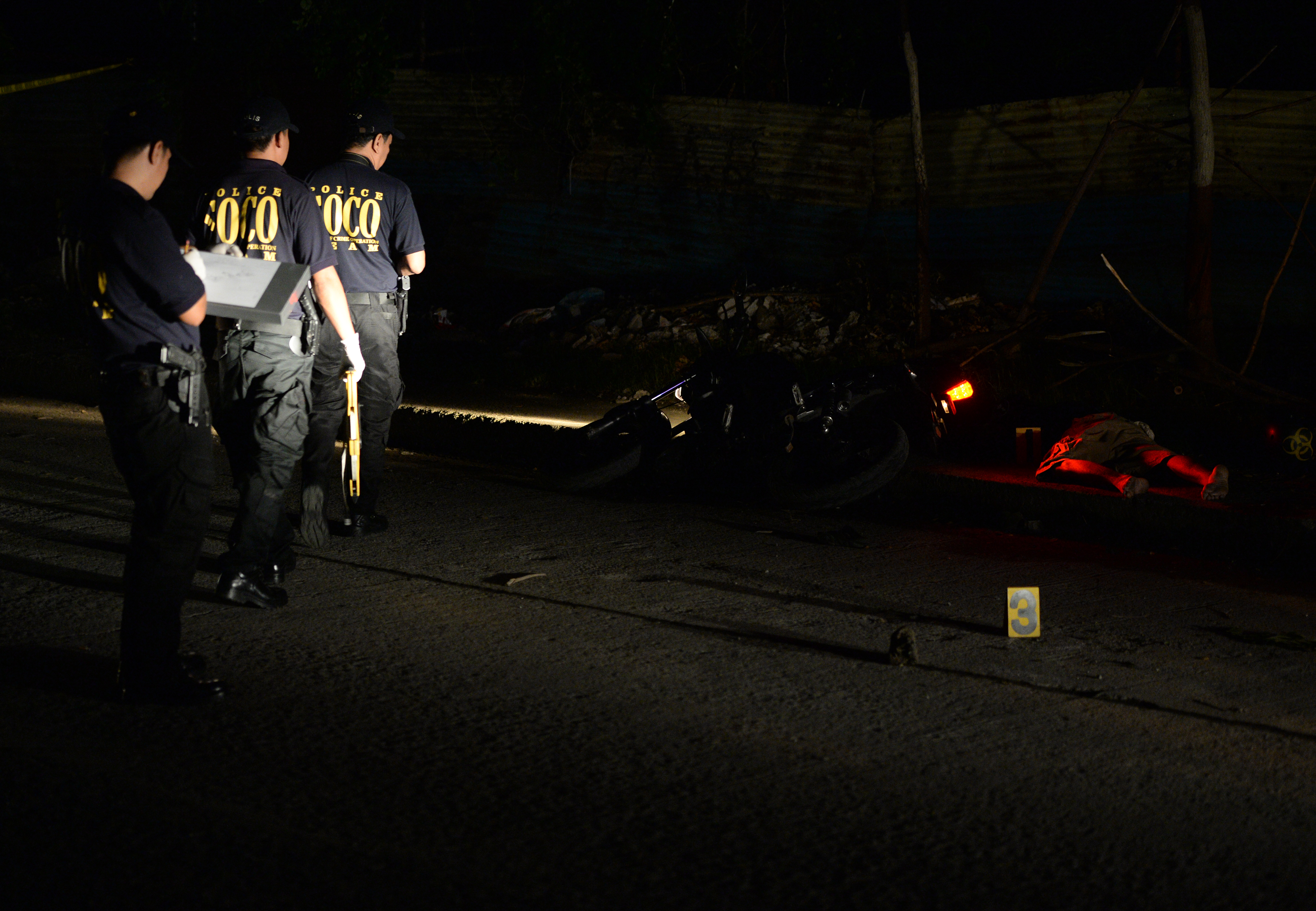
(Eagle News) — Kind of farfetched.
This was how the spokesperson of the Philippine National Police described the allegations made by two active and former police officials, as reported by Reuters on Wednesday.
“Ang kanilang mga (supposed) allegations, medyo malayo sa katotohanan. (The killings of drug suspects are) not being ordered by the organization. Di parte ng PNP ang kanilang sinasabi dun,” Senior Supt. Dionardo Carlos said in an interview over GMA News TV on Thursday.
He also denied what Reuters reported were allegations of a reward system in place by the PNP for those who would kill criminals.
The allegations, Reuters said, were made by one of the supposed two people who talked to them.
The intelligence officer, Reuters said, alleged in a 26-page report titled “The State-Sponsored Extrajudicial Killings in the Philippines,” that police are paid to kill not just drug suspects, but also pickpockets, swindlers, rapists, gang members, alcoholics and other “troublemakers.”
According to Reuters, the report said “reward scales” were pegged at P20,000 for a “street level pusher and user,” P50,000 pesos for a member of the barangay, P1 million for “distributors, retailers and wholesalers,” and P5 million for “drug lords.”
“That’s a violation of the law. There’s no such order coming from the leadership so hindi yan tolerated,” Carlos said.
No such big figure
Carlos also denied what Reuters said that “almost 9,000 people, many small-time users and dealers, have been killed since (President Rodrigo) Duterte took office on June 30.”
He said based on PNP records, there’s no such “big” figure.
“Again, mali nanaman yan… The last report by the Directorate for Investigation and Detective Management is 1398. Hindi lahat ng nagaganap na krimen ng pagpatay, murder ay konektado sa ilegal na droga. Ang ginagawa kasi, ang bilang na yun ay pinalalabas na konektado sa ilegal na droga, lahat yan ay summary executions, o lahat yan ay extrajudicial killings. Hindi po. Ibig sabihin lahat po palang nangyayari na patayan in the past are all EJKs and summary executions before the current administration?” he said.
He said based on current PNP records, those who died in police operations are 2700, of which 1398 are drug-related.
The rest, he said, are “under investigation,” and the others are “based on other motives.”
“Hindi (sila) konektado sa droga ngunit pilit na binibilang sa kampanya laban sa ilegal na droga,” he said.
Ongoing investigation
He said either way, the PNP was already conducting an investigation into the allegations made in the Reuters story, and the 26-page report it quoted.
“I was communicating with the reporter of Reuters pertaining to that (26-page) report. However, they only wanted us to comment on the specifics. And we wanted to look at the entire report and clearly establish ang mga sinasabi nito,” he said.
He said he also hoped that the two supposed active and retired police officials interviewed by Reuters would surface so they can help the PNP in their investigation.








